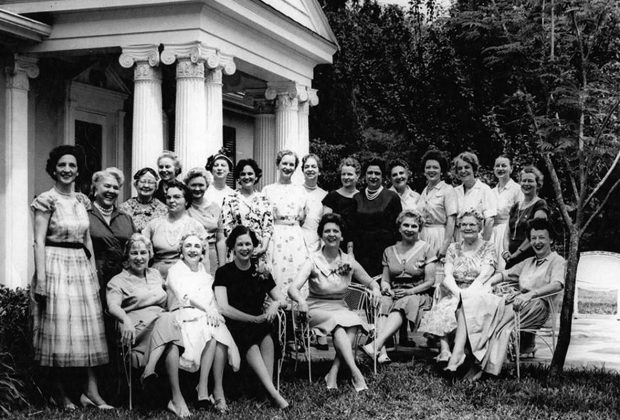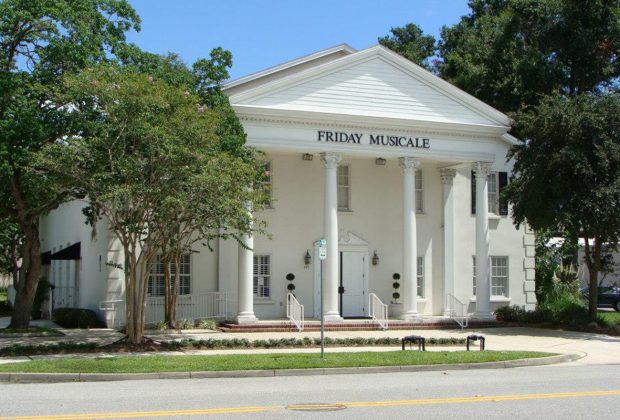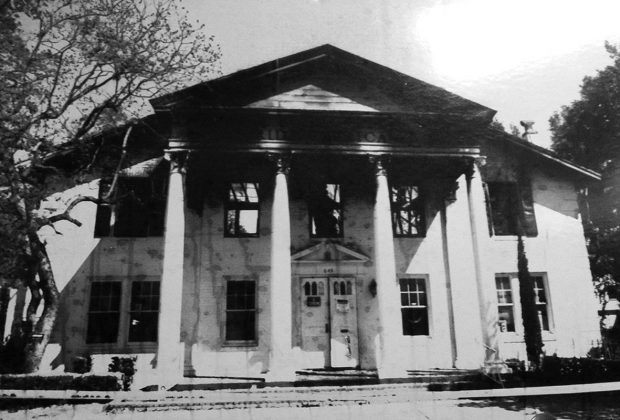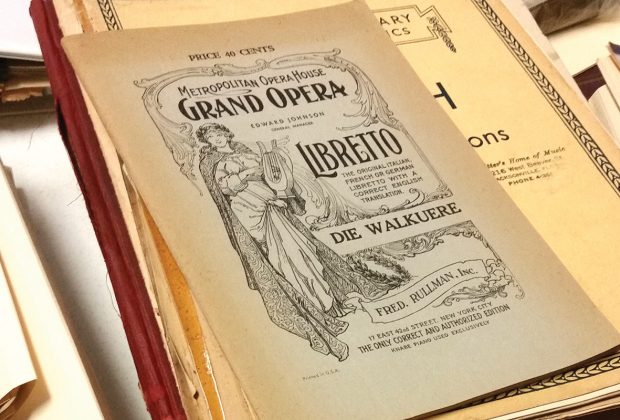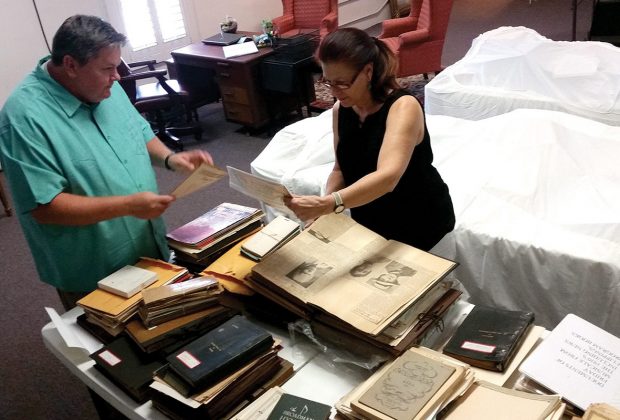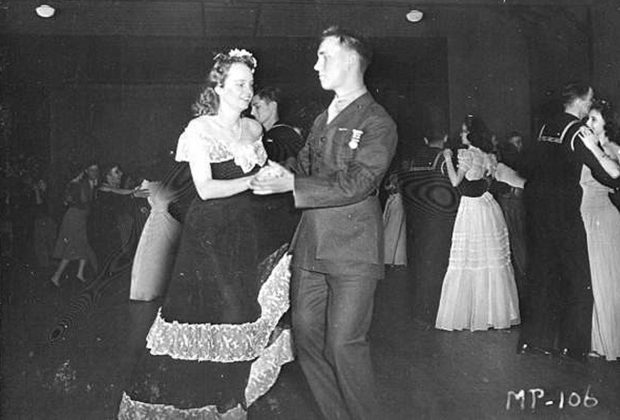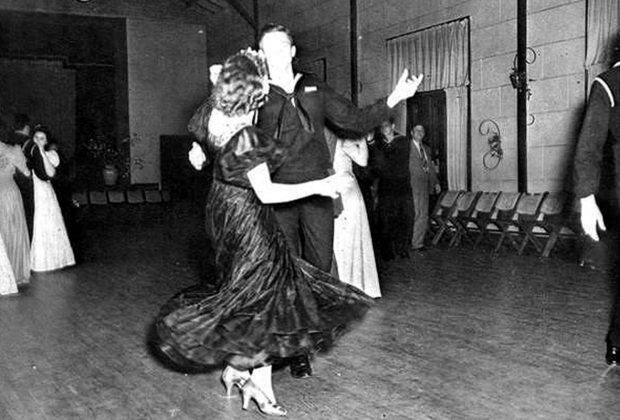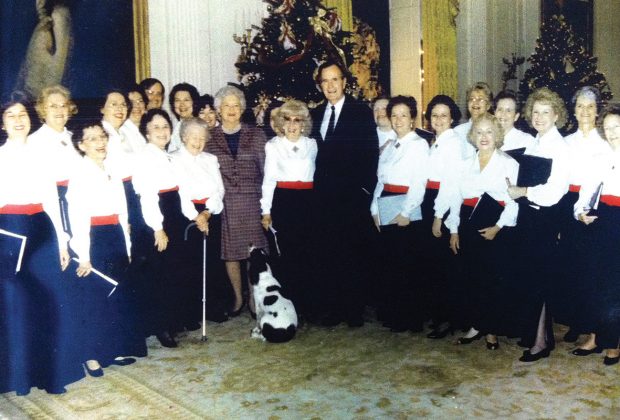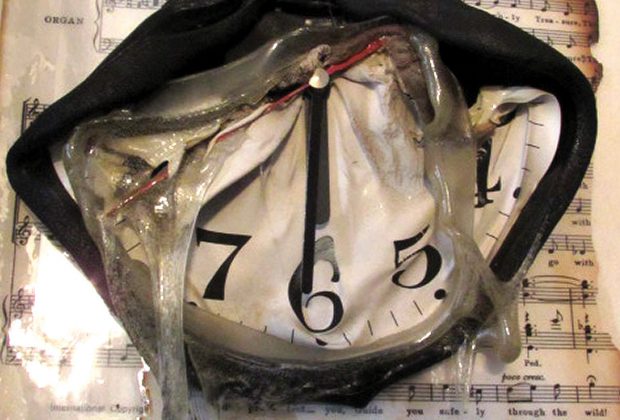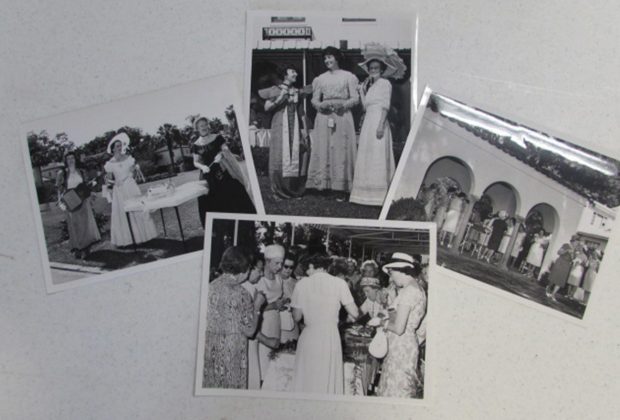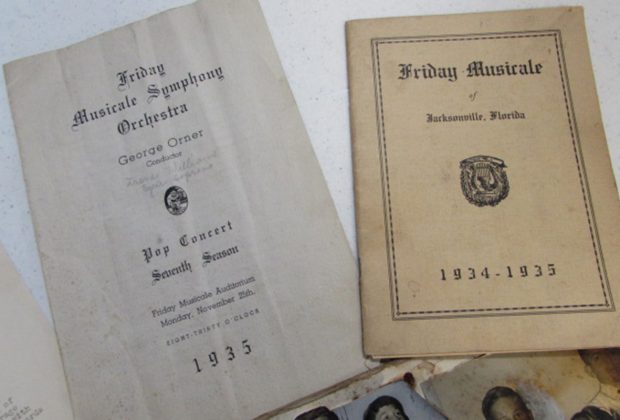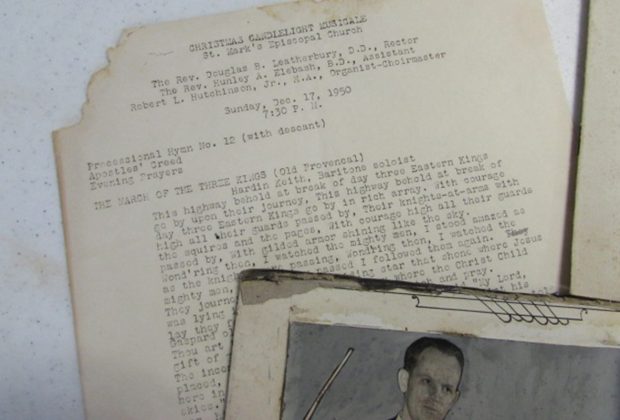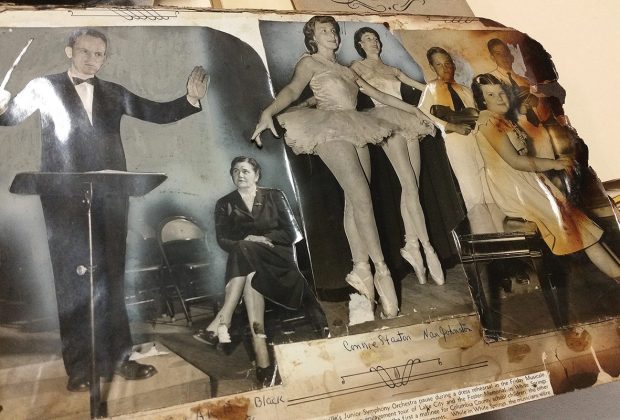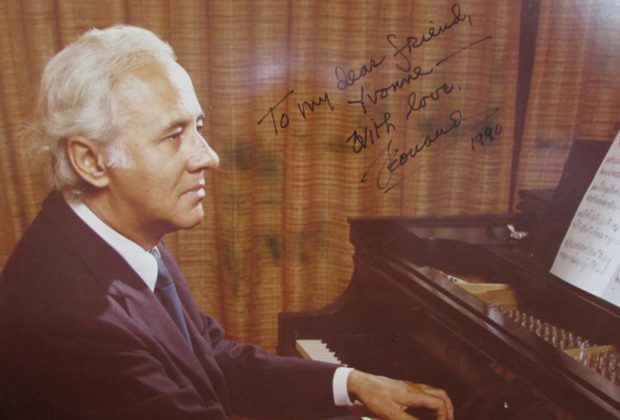Friday Musicale director has big visions for venue
Inside the elegant, white-columned, 1930s Colonial Revival-style building of Friday Musicale’s Riverside auditorium, a second-story, climate-controlled storage room is filled with rows and rows of tables lined end to end.
Covered with white tablecloths, the items beneath are donations and artifacts of the nonprofit – some dating back to its establishment in 1890. They wait to tell their stories about this 127-year-old nonprofit whose main mission is to provide Jacksonville free musical concerts and support local music students with competitions and scholarships to pursue music study at the college level.
There amid programs, scrapbooks, photos and even printed napkins from former concerts, the past is very much alive – but so is the future and the organization’s three-part improvement plan.
When Executive Director Naomi Sheridan arrived last fall and began excavating through the memorabilia she said she knew archiving it would be important. With the help of two summer interns the items were sorted chronologically and now await the next steps.
“I thought ‘why not transform the storage room into a more usable space by making it a mini-conference room for 20 and create a small museum to feature the items?’” she said.
Within the next six months Sheridan’s vision should become reality as Friday Musicale waits on-site plans before proceeding on its second and third segments. Phase 2 will take undeveloped greenspace between the triad of buildings it owns and create a landscaped and multipurpose area.
The space is conducive to a courtyard and would improve offerings for outdoor events, explained Jeff Tawney, venue director.
On Oak Street, L’Engle Hall can seat 150 and has its own baby grand piano. Next door, its auditorium features 39-foot ceilings, glass chandeliers, solid oak flooring, seating for 250 and a small stage. Its third building, located on May Street, is office rental space.
The changes, according to Tawney, are planned to expand Friday Musicale’s concert reach in the Jacksonville area and the options it can provide as a rental venue.
Phase 3 is the biggest project: enhancing the current auditorium. After the site plans come in and plans are drawn, they’ll provide the details Sheridan needs when she applies for a $500,000 State of Florida facilities grant next June 2018.
“We have no proper backstage area,” Tawney explained.
The green room with a restroom, for performers to relax, is the space behind the side stage. A narrow hallway behind the stage connects to another space.
The hope is to increase seating capacity from 250 to 350, add a loading dock and backstage area large enough to expand the green room area, provide classrooms for master classes with the artists and to allow for proper storage and the ability to move its two Steinway & Sons concert grand pianos, which currently dominate the 15-foot by 35-foot stage. Sheridan said the stage is so small that previous groups too large to fit there would set up on the floor. The hope, she said, is that within two years all the improvements will be completed.
“Jacksonville is host to world class cultural arts organizations like The Cummer and great community theatre but we’re virtually unknown,” said Michael Currie, Friday Musicale board chair. “We want to get more people involved in our programs and this year moves us toward more musically diverse ones as we experiment [with genres in addition to classical].”
Sheridan and Friday Musicale’s concert committee select performers.
“Since we’ve been around for so long, I get about 500 emails a year from various artists,” she said. “From there the committee and I work to narrow down whom to include.”
Beginning in October, more than 15 events will feature offerings such as the Estrella Piano Duo on Opening Night, Oct. 13, to Kai Alece & Company’s ‘50s Soul and Jazz Mar. 9, 2018, and its annual Outstanding Young Pianists competition, April 28, 2018.
According to Friday Musicale’s website history, the organization was originally Ladies Friday Musicale because its membership was limited to women who played musical instruments, auditioned to be a part, and paid monthly dues of $2. It began in the home of Claudia L’Engle Adams, a highly trained musician who had studied at Baltimore’s Peabody Conservatory of Music. After moving to Jacksonville, she invited 11 ladies “in the parlor of her East Monroe Street home for weekly afternoons of musical study and performance.”
Through the years, the group grew, hosted concerts, and in 1923 changed its bylaws to “honor the contribution of men within the organization” and also dropped the word “ladies” from its name. Since its early existence, the group has supported Jacksonville youth with music programs. For example, it even purchased Victor Talking Machines for public school music classes and supported a Youth Orchestra for 50 years.
Since its creation in 1890, the nonprofit had volunteer staff and its membership ran the organization. In 2010, it hired its first paid executive director.
By Cheryl B. Lemine
Resident Community News



